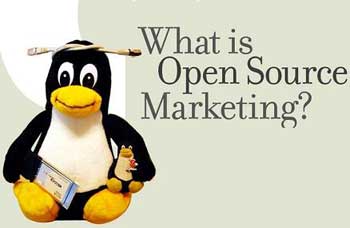 In November, the Open Source Development Lab (OSDL) established a common reference library listing patent samples to help developers avoid unintentional copyright violations. The OSDL director is confident that issues surrounding open source copyright will no longer be chaotic and inconsistent.
In November, the Open Source Development Lab (OSDL) established a common reference library listing patent samples to help developers avoid unintentional copyright violations. The OSDL director is confident that issues surrounding open source copyright will no longer be chaotic and inconsistent.
Some companies argue that the risk of infringing open source copyrights is merely a theoretical topic, as there has never been any known lawsuit against developers or users for infringement.
However, many assert that such legal disputes have occurred but were always settled through confidentiality agreements. To bolster the credibility of this claim, Open Source Risk Management (OSRM) conducted a study in 2004, identifying 283 patent samples that Linux had allegedly infringed. One-third of these are owned by IBM, while the remainder belongs to other corporations, including HP and Cisco.
The study’s findings caused a stir at the LinuxWorld Conference in San Francisco last August. However, OSRM refused to disclose the 283 samples, making it extremely difficult to verify the results of the research. Conversely, OSRM argues that they cannot reveal this information because the infringements were unintentional, and the situation would change entirely once a specific patent is identified as infringing.
IBM is a major supporter of Linux and has consistently invested in providing advisory services for customers transitioning to Linux. Recognizing that this issue could impact Linux business, Nick Donofrio, IBM’s Vice President of Technology and Manufacturing, swiftly asserted: “I can assure you that the corporation has no intention of using its patents against the Linux kernel.”
In January, the company announced the necessary legal documentation to ensure that at least 500 of their patents do not conflict with official open source software. Sun Microsystems also committed to providing 1,670 patents to support the Common Development and Distribution License (CDDL) in February.
However, the Free Software Foundation (FSF) criticized the server manufacturer, stating that this was merely a “very limited” act of generosity towards CDDL. Adding fuel to the fire, Scott McNealy, CEO of Sun, stated that he would not expand the registered patents and could not rule out the risk that Sun’s patent portfolio might accidentally conflict with Linux because “Sun has committed to its shareholders to promote and protect intellectual property rights.”
Sun’s actions created a ripple effect, prolonging the debate over open source licensing. Martin Fink, a significant figure in Linux from HP, in February called for the Open Source Initiative (OSI) to change the approval process for open source patents. “Approving a license based on adherence to standards, rather than on the potential impact on future open source business models, will endanger all open source models,” Fink stated. “If this is the path OSI continues to choose, it will only lead to inconsistency and misalignment.”
OSI has taken these suggestions into account, appointing the Chief Technology Officer of Red Hat as OSI Director and is currently in the process of reviewing and restructuring the approval process.


















































